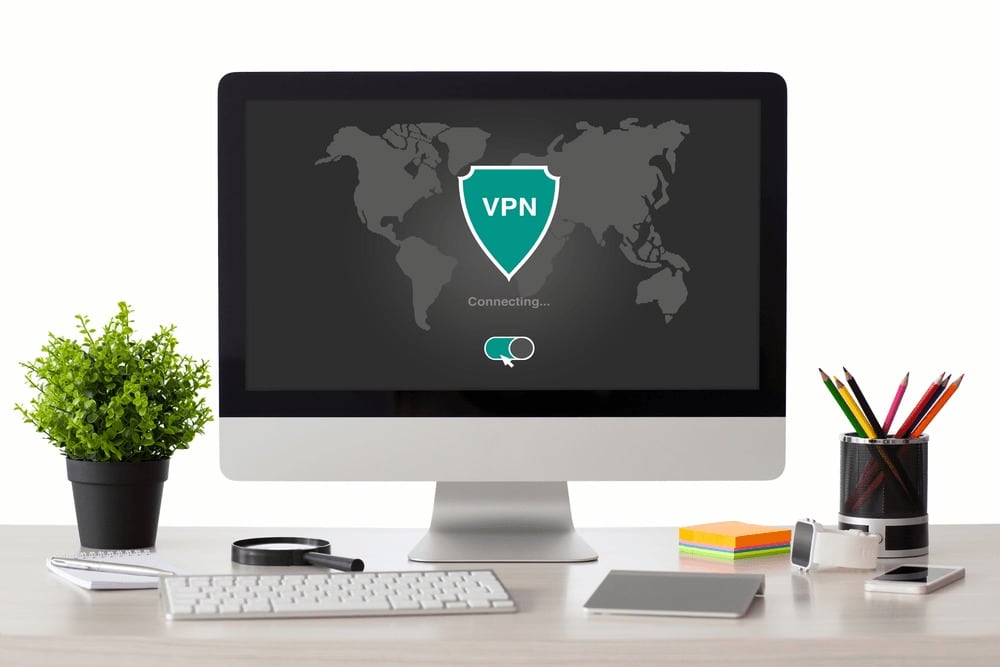Residential proxies have become an essential tool for many online activities like web scraping, sneaker bots, ad verification, and more. But with so many proxy providers out there, how do you know which ones are the best?
I‘ve done extensive research on the top residential proxy services for 2023 to compare their features, reliability, locations, and pricing. This guide will overview everything you need to know to choose the right residential proxy provider for your needs and budget.
Below I‘ve listed the top 25 residential proxy services for 2023, starting with my top recommendations:
First Look
1. Best Overall: Oxylabs
Oxylabs offers the largest pool of residential IPs with over 102 million globally. They are extremely reliable and one of the most reputable proxy providers out there.
2. Best for Locations: Bright Data
Bright Data has 72 million residential IPs covering 290,000 cities in over 200 countries. Unmatched location targeting worldwide.
3. Best for Use Cases: Proxyrack
Proxyrack specializes in proxies tailored for social media, shopping, gaming, sneaker bots, and more. Great for specific use cases.
4. Best Budget: GeoSurf
GeoSurf has cheap residential proxy plans starting at just $75/month for 15 GB of traffic. Excellent value.
5. Best Customer Service: NetNut
NetNut has outstanding 24/7 live chat support and helps customers get set up and address any issues.
Best Residential Proxies in 2023
Let‘s take a deeper look at my top recommendations:
1. Best Overall: Oxylabs
Oxylabs is my top pick for best overall residential proxy provider. Here‘s why:
- Huge pool of 102+ million residential IPs globally
- Very reliable with 99.9% uptime
- Accounts can handle thousands of concurrent threads
- Advanced features like automatic proxy rotation
- Generous free trial to test out the proxies
- Used by many large corporations
The main downside is that they are one of the more expensive providers. But you get what you pay for in terms of proxy quality and reliability.
Features:
- 102+ million residential IPs
- Proxies in 195+ locations
- 99.9% uptime
- Unlimited concurrent threads
- Automatic rotation
- Integrations and API access
- Free trial available
2. Best for Locations: Bright Data
Bright Data stands out for having the most location targeting options of any residential proxy provider. Some key facts:
- 72 million residential IPs
- Proxies in over 200 countries
- Covers 290,000 cities globally
- Advanced regional and city-level targeting
- Great for ad verification and localization testing
The large IP pool and granular targeting make Bright Data a top choice for companies needing to access content from many locations.
3. Best for Use Cases: Proxyrack
Proxyrack has an innovative approach – they offer residential proxies tailored for specific use cases like:
- Social media proxies
- Sneaker proxies
- Shopping proxies
- Gaming proxies
- General private proxies
This makes it easy to get proxies purpose-built for your particular needs. Proxyrack is especially popular for sneaker bots.
4. Best Budget: GeoSurf
For cheap residential proxies, GeoSurf is a great budget choice. Their plans start at just:
- $75/month for 15 GB
- $225/month for 50 GB
Despite the low prices, the proxies are high-quality and reliable. The location targeting is also very flexible. If you need residential proxies on a budget, GeoSurf is worth checking out.
5. Best Customer Service: NetNut
NetNut stands out from other residential proxy providers with its outstanding customer support.
- 24/7 live chat and email
- Very knowledgeable and responsive
- Help set up proxies and any troubleshoot issues
I also like that NetNut has a generously-sized pool of 10 million residential IPs. Combined with the great support, NetNut is a top choice for anyone who wants extra assistance.
6. IPRoyal
- 25,000+ residential IPs
- Proxy locations in US and EU
- Affordable pricing starting at $3 for 1 GB
- Generous bandwidth pools up to 5TB
- Free trial available
7. Proxy Seller
- Residential and datacenter proxies
- SOCKS5, HTTPS, HTTP protocols
- Prices from $3 per GB
- Unlimited bandwidth plans
- Discounts for annual subscriptions
8. ProxyRack
- Specialize in social media proxies
- Additional shopping and gaming proxies
- 1.2 million residential IPs
- Locations in US, Europe, Asia
- Starting at $200 for 5 GB/month
9. Soax
- 5 million residential IPs
- Automatic rotation and geotargeting
- Integrations with bots and parsers
- $360 for 40 GB/month
- Free 1-hour trial
10. Smartproxy
- 40 million residential IPs
- 195+ locations worldwide
- 5 GB for $75/month
- Unlimited concurrent threads
- Integrations via API
Key Things to Know About Rotating Residential Proxies
There are a few key things to understand about how rotating residential proxies work:
The IPs come from real devices like home PCs and mobile phones. This makes them appear more legitimate than datacenter IPs when browsing.
Residential proxy providers have pools of millions of IPs, but not all will be available at once as people go offline.
Most residential proxies are rotating shared IPs, where the IP will change after a set time or usage.
You typically purchase traffic volumes, not individual IPs, to access the provider‘s entire proxy pool.
Rotating proxies help avoid IP bans compared to static residential proxies.
Faster rotation intervals (every 5 mins, 1 min, etc) increase anonymity but may impact performance.
Residential Proxies vs. Datacenter Proxies
Residential and datacenter proxies work differently:
Residential – Uses real ISP IPs so mimics actual users. Hard to detect and block. Ideal for web scraping and accessing restricted content.
Datacenter – Shared IPs hosted on servers in a datacenter. Easier to identify and block. No ISP source. Cheaper but less anonymous.
Key advantages of residential proxies:
- Appear more legitimate with real ISP source
- Geo-targeting of actual locations
- Avoid IP blocks and access more sites
- Completely hide your identity and location
How Much Do Residential Proxies Cost?
Residential proxy prices can vary quite a bit depending on:
- Provider reputation and proxy quality
- Number of locations supported
- Amount of bandwidth and concurrent threads
- Type of IP – shared, private, rotating, static
Some typical price ranges:
- 1 GB of traffic – $1 to $20
- 5 GB/month – $10 to $100+
- 10 GB/month – $50 to $200+
More premium providers like BrightData tend to charge $10-$20 per GB. More budget providers offer rates as low as $1 per GB.
It‘s common to get discounts for larger bandwidth packages or annual subscriptions.
Residential Proxy Use Cases
Here are some of the most popular uses for residential proxies:
Web Scraping
Residential proxies allow you to crawl sites and gather data without getting IP banned. The legit ISP IPs help avoid blocks.
Sneaker Bots
Copping limited sneaker releases requires proxies to run many concurrent checkout threads. Residential IPs work best to avoid blocks.
Ad Verification
Checking ad campaigns and links across regions requires IP diversity. Residential proxies provide locations from actual users.
Price Comparison
Gathering price data across geo-fenced sites takes lots of different IPs. Residential proxies provide the IP diversity.
SEO Proxies
Checking Google rankings and SERPs from different locations is key for SEO. Residential proxies enable geo-targeting.
What is the Difference Between Cheap and Premium Proxies?
There are a few key differences between budget and premium residential proxies:
Pool size – Cheap proxies usually have fewer total residential IPs, so you‘re more likely to get repeats. Premium have larger pools.
Locations – Cheap proxies generally support fewer country locations vs premium providers.
Speed – Premium networks offer higher speeds and bandwidth vs cheaper proxies.
Reliability – Premium proxies usually have higher uptimes and reliability vs cheaper services.
Features – Premium providers offer more advanced features like API access, integrations, detailed analytics, etc.
While cheaper proxies might save you money up front, the lack of features, speed, and reliability can end up costing you more in the long run if they don‘t work as well.
Why Use Residential Proxies Instead of Datacenter?
There are a few key reasons residential proxies are better than datacenter proxies for most uses:
Appear more legitimate – Residential IPs are associated with real ISPs so they mimic actual users vs datacenter proxies which are easier to detect.
Avoid IP blocks – Websites are more likely to block datacenter IP ranges vs residential IPs which typically avoid blocks.
Geo-targeting – You can geo-target specific cities and regions with residential proxies based on actual user locations.
Completely anonymous – Datacenter proxies reveal the proxy provider‘s info. Residential proxies hide your identity and IP.
Higher success rates – Residential proxies provide better results for things like web scraping, copping sneakers, ad verification, etc.
FAQs about Residential Proxies
What are residential proxies?
Residential proxies route your traffic through residential IP addresses assigned to home or mobile users by ISPs instead of datacenter IPs. This allows you to appear as a real user.
What is a residential IP address?
A residential IP is an IP address provided by an ISP to a home or mobile user, as opposed to a datacenter IP which hosts multiple customers.
How do residential proxies work?
Residential proxies connect you through IPs of real devices to mask your identity. The proxy rotates your traffic through its pool of residential IPs to avoid detection.
Why use a residential proxy?
To hide your identity and location, avoid IP bans, access geo-restricted content, scrape sites successfully, and gain other benefits over datacenter proxies.
The Bottom Line
Hopefully this overview has helped explain what to look for in the best residential proxy providers. The key is finding one that offers enough locations, bandwidth, and features for your particular use case at a fair price.
I recommend starting with the providers listed here as they are the top residential proxy services for 2023 based on my extensive research. Most offer free trials so you can test them out firsthand.
Just remember – residential proxies are not all equal. Investing in a quality provider with plenty of IPs and strong performance is worth it over the long run.






